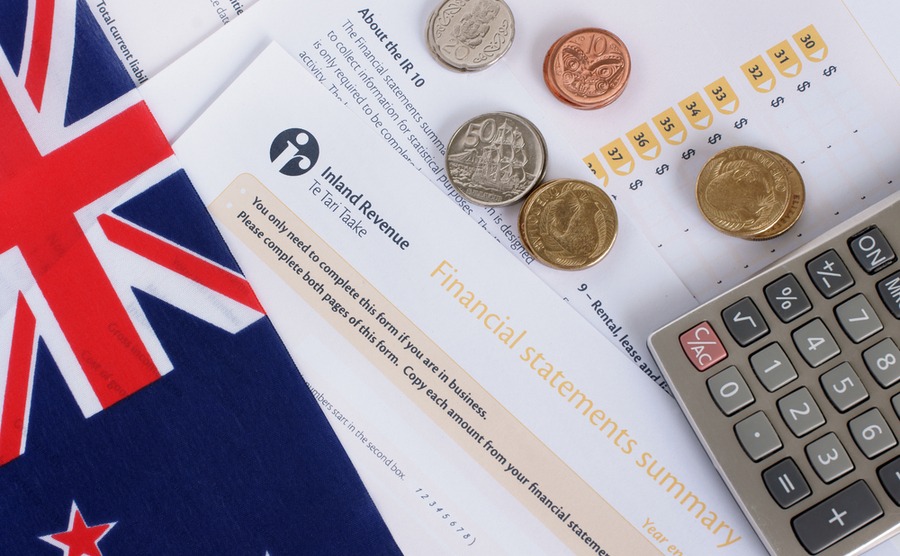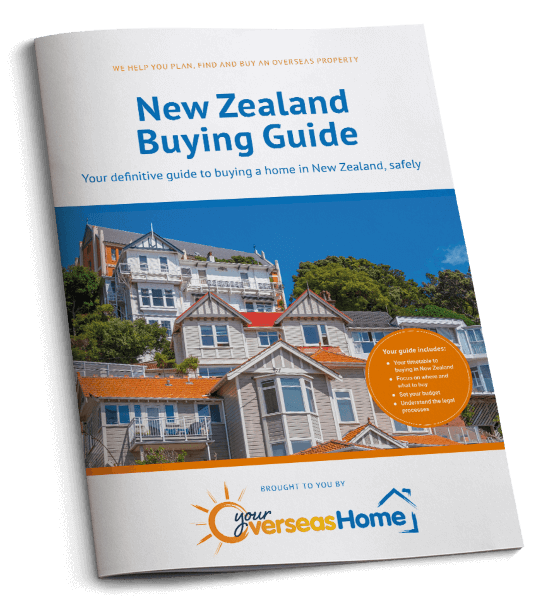Just when you thought you’d heard every ranking New Zealand tops, here’s another one: the world’s best personal tax system! Even moving to the other side of the world might not free you from paying up, but, luckily, the tax system that you will be greeted with is incredibly easy to navigate and is focused on fairness and predictability.
Today, we’re outlining how the system runs, the rates you’ll be charged, and everything you need to know about how you will be taxed when you move to New Zealand.
What will I be taxed on?

New Zealand not only has one of the world’s best qualities of life, but even its best personal tax system!
In line with its easy-to-navigate promise, the New Zealand government only imposes income and Goods and Services Taxes (GST) on its citizens. Much like the United Kingdom, the taxes collected are used to fund services which are of benefit to the whole nation. This includes the usual suspects; healthcare, emergency services, law enforcement, public transport, education and so on.
What won’t I be taxed on?
Good news – once you arrive in New Zealand, you won’t have to pay the following taxes:
– Inheritance tax
– Capital gains tax, apart from on certain investments
– State or local taxes, besides property rates which are charged by your local council (see below).
– Payroll tax
– Social security tax
– Healthcare tax, apart from a very low levy charged for New Zealand’s Accident Compensation injury insurance scheme (see below).
Income tax
Like the UK, NZ income tax is charged at different rates depending on how much you earn. How much you pay will depend upon which bracket you fall into. The most up-to-date rates are as follows:
- 10.5 percent on earnings from NZ$0 – $14,000.
- 17.5 percent on earnings from $14,001 – $48,000
- 30 percent on earnings from $48,001 – $70,000
- 33 percent on earnings from $70,001.
Goods and Services Tax (GST)
When you move to New Zealand, you will have to pay GST of 15 percent on almost everything you buy. Unlike other countries, which charge different rates of goods and sales tax from product to product, New Zealand’s flat rate keeps things nice and simple. If you run a business or you are self-employed, you will be able to recover any GST charges you pay through the business, in much the same style as it’s possible to recoup VAT in the UK. It’s worth noting that GST is not charged on residential rent or financial services.
When you’re sending money between the UK and New Zealand, you could lose thousands to suddenly changing exchange rates. Find out how to protect your money in the Property Buyer’s Guide to Currency from our partner Smart Currency Exchange.
Property tax
As an owner of property, you will have to pay annual local property rates. Even if you have a tenant residing in the property, as the owner, you are still liable for this payment. Local property rates are charged annually by your local council or authority, and are used to pay for services the council provides, such as rubbish collection, landscaping, maintenance etc. The amount charged is calculated depending on the value of your property and its location. As this cost varies from place-to-place, always factor the local property rate amount into your budget when you’re viewing houses. It’s important to establish what your outgoings will be so you can budget for your new life. As these rates are one of the most considerable, its vital you establish how much you will be billed for so you don’t get a nasty surprise later down the line. You will be able to find an estimate of your rate by visiting the website of your local council, via Auckland council for example.
Social security/ insurance levies
When you move to New Zealand, the majority of your social security and health needs are covered by general tax. However, people do still opt to take out private health insurance to ensure faster service and access to better facilities.
Additionally, as mentioned above, there is a small levy charged for ACC, which is New Zealand’s unique accident compensation scheme. The scheme is compulsory and covers the individual in the case of personal injury. Depending on your injury, paying into this scheme means that the ACC will pay a proportion of your medical costs, transport fees, modifications to your house or vehicle, plus training, support and therapy. Earners pay 1.39% up to a maximum of $126,286 in earnings (2018/19 tax year). Additionally, motorists pay a levy with their annual car registration, and employers pay insurance cover based on industry risk.
How soon after I move to New Zealand will I have to pay tax?
As a general rule of thumb, most new arrivals will need to complete a tax return in their first year in the country. This is particularly important if you move to New Zealand in the middle of a tax year, or are earning income in the UK or other overseas locations. The New Zealand tax year runs from 1st April to 31st March. If you plan to complete your own tax return, it must be lodged by July 7th. If a registered tax agent completes it on your behalf, you have more time and the deadline for submission is March 31st. As we all know, tax is a complicated issue as everyone’s liabilities can differ wildly. To ensure a smooth transition into the New Zealand tax system, it is advisable to contact a tax specialist to walk you through the process.
Tax exemptions
For the first four years that you live in New Zealand, you will have ‘transitional tax resident’ status. This means that for those first four years, all income from overseas pensions and investments will be exempt from New Zealand tax. During this transition period, you will only be charged tax on income that is generated from within New Zealand.







